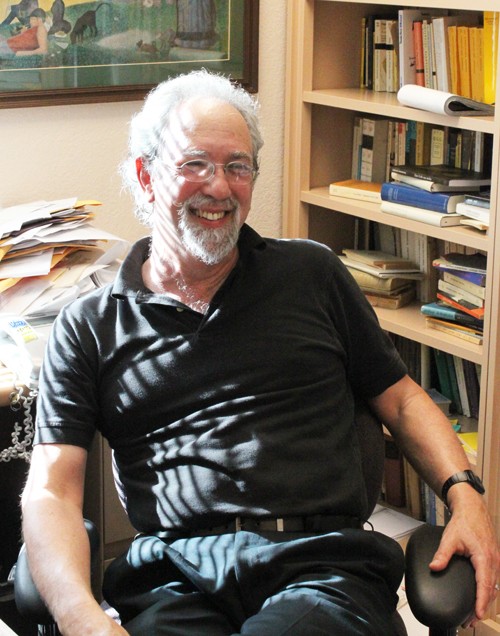Sprechen Sie Deutsch? Don’t worry, German 376 is for English speakers, too.
The class, German-Jewish Writers, explores the literary works throughout history by Jewish writers who identify as German.
“”Americans think German-Jewish equals Holocaust,”” said German studies professor Thomas Kovach, “”but there was a good 150 years before that of work, and in fact there was no culture or society in the world where (Jews) felt more at home or committed to that culture as Germany.””
Students may think German writers don’t hit close to home, but they would be surprised to hear many big names who are discussed in this class.
“”Marx, Kafka, Einstein, Freud — these are all German writers who shaped the modern world,”” Kovach said.
Many Jewish people in Germany converted to Christianity, especially around the time of World War II, so this class focuses on examining the Jewish identity in Germany.
“”Kafka, people are always intrigued by since one of the pieces he wrote was about an ape giving a report to an academy,”” Kovach said. “”One of the ways we can interpret that is it’s parallel to Jewish assimilation. We (Jews) can learn German, act German, but in the eyes of Germans we’re still alien creatures.””
The last three weeks of the class are devoted to modern German-Jewish writers, which is “”mind-boggling”” to many students.
“”They’re surprised that there are still Jews in Germany and they are fast-growing,”” Kovach said. “”It’s really inspiring, especially after the war, because they are so committed to getting word out that they are still in Germany, and they deserve to be acknowledged.””
As with any literature-based class, there is no right answer, something Kovach said “”can be frustrating for some students not well-versed in literature.””
Students read poetry, dramas, philosophies and other texts, and the class is mainly lecture.
“”It’s difficult material, so it’s more lecture, but students are good at exchanging ideas and comments,”” Kovach said. “”We have informal debates which can lead to really stimulating discussions.””
Kovach also sometimes shows PBS video documentaries.
The class is graded heavily on attendance and participation, and the only assignments other than the readings are two papers, one at midterm and the other as a final.
This class is open to all students and satisfies the general education requirement for Tier Two Humanities, and the Gender, Race, Class, Ethnicity, Sexual Orientation or Non-Western Area studies, and is generally only available in the fall.
“”I find it interesting,”” said Chelsea Shapouri, an undeclared sophomore. “”I wouldn’t have picked these books without the class. And I really find the readings good, but I think this class would be better for people if it was their major, or if they had a lot of interest in the subject.””









